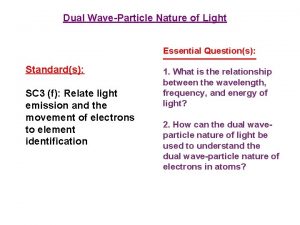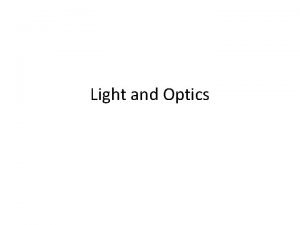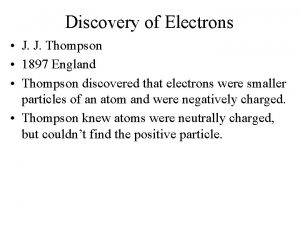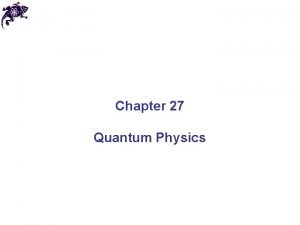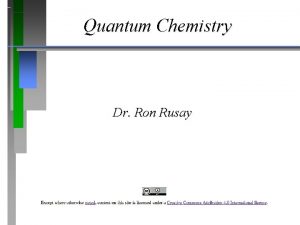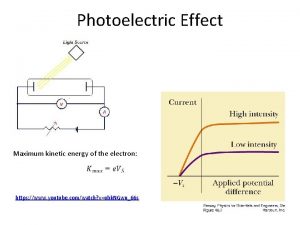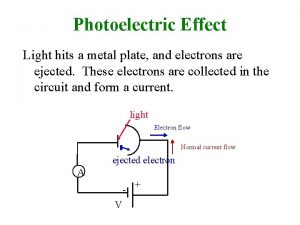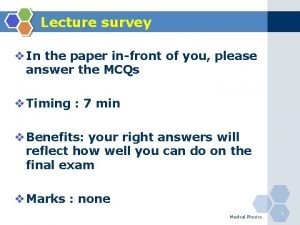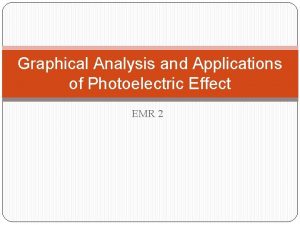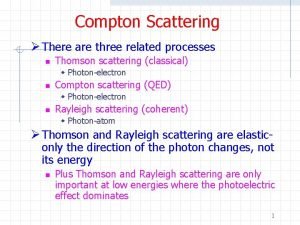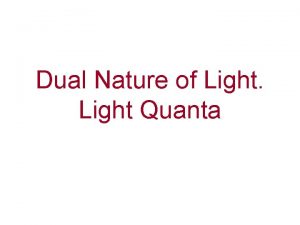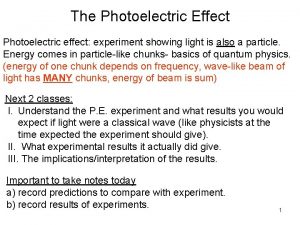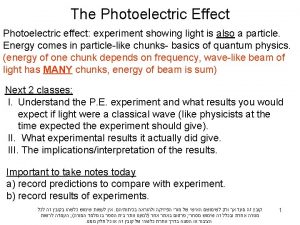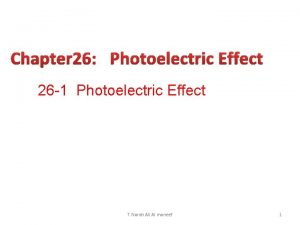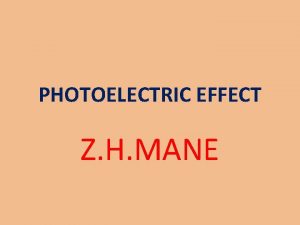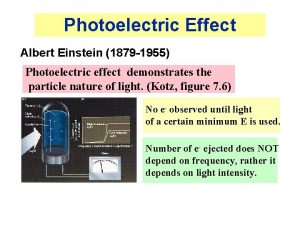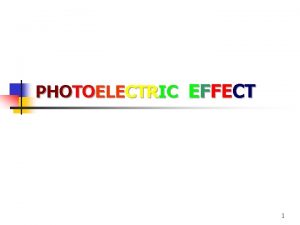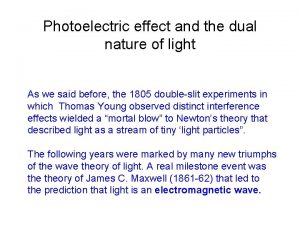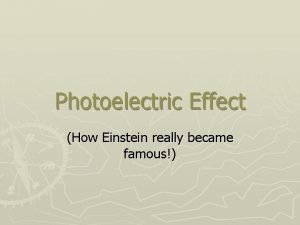PHOTOELECTRIC EFFECT QUICK REVIEW DUAL NATURE OF LIGHT










- Slides: 10

PHOTOELECTRIC EFFECT

QUICK REVIEW • DUAL NATURE OF LIGHT: Light is an electromagnetic wave that has both wave and particle properties. • QUANTUM THEORY: Light consists of bundles of energy called photons. The energy is directly proportional to the frequency of the light.

ENERGY OF A PHOTON: E=hf or E=hc λ E = photon energy ( J or e. V) C =speed of light (3. 0 x 108 m/s) h = Planck’s constant (h= 6. 63 x 10 -34 J·s) f = frequency (Hz) λ = wavelength (m)

EXAMPLE Ex: A photon of red light has a frequency of 4. 22 x 1014 Hz. How much energy does it have in joules? In electron volts? E = hf E = 6. 63 x 10 -34 J·s(4. 22 x 1014 Hz) E = 2. 80 x 10 -19 J 1. 6 x 10 -19 J/e. V E= 1. 75 e. V

Energy vs. Frequency Energy vs. wavelength E(J) f(Hz) λ(m)

Important terms • Photoelectric effect- The emission of an electron from a metal plate due to exposure to electromagnetic waves of a certain frequency. • Threshold Frequency (fo)- minimum frequency needed to move photoelectrons. Varies with each metal.

ØIf the frequency is too low, no electrons are emitted. ØIf the frequency is equal to the threshold frequency, the electron is emitted but doesn’t move. ØIf the frequency is greater than the threshold frequency, the electron is emitted from the plate and increases in velocity.

Kinetic energy of photoelectrons Threshold frequency is different for each metal. As the frequency increases, the kinetic energy of the emitted electron increases. The slope of every graph is equal to Planck’s constant. KE(J) Fo (Hz) NOTE: KE = 1/2 mv 2 If velocity increases so does the kinetic energy

LIGHT INTENSITY Increasing the intensity of the light (brightness) will increase the number of released electrons but it won’t increase the kinetic energy of the electrons. KE(J) INTENSITY

Solar Cells: Sunlight hits a metal plate and releases electrons. This causes a flow of electrons which produces electrical energy. silicon, cadmium telluride, and copper indium selenide-sulfide.

